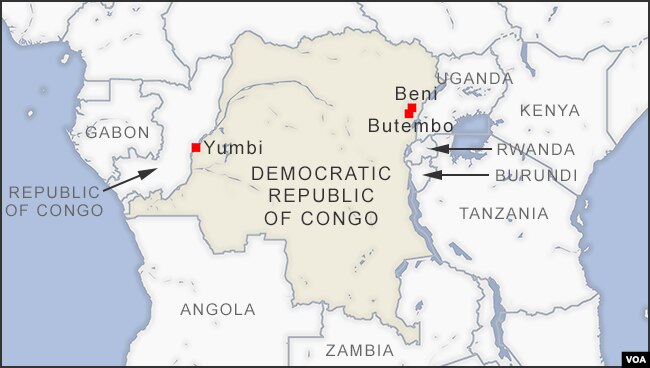KINSHASA — At least 15 mass graves have been found in northwestern Democratic Republic of Congo in the wake of three days of ethnic bloodshed in December, a spokeswoman for the U.N.’s MONUSCO mission in Congo said Tuesday.
Earlier in January, the United Nations estimated that at least 890 people were killed as a result of the violence, some of the worst in the area for years which highlighted the precarious state of inter-ethnic relations even in the Central African country’s more peaceful regions.
A MONUSCO special mission looking into the circumstances of the fighting found at least 11 mass graves and 43 individual graves around the town of Yumbi and at least four communal graves containing at least 170 bodies in nearby Bongende, spokeswoman Florence Marchal said.

“While the conclusions of this mission are still being finalized, we are able to confirm that several hundred people including women and many children were killed in unbearable circumstances,” she said.
“The speed, the modus operandi and the high death toll of this violence suggest that these events were planned and premeditated,” she said.
A dispute linked to a tribal chief’s burial is seen as a catalyst for the fighting between the Banunu and Batende communities. It led the government to cancel voting in the area for last month’s presidential election.
While the bloodshed was not directly related to the Dec. 30 vote, a local activist told Reuters at the time that tensions between the two ethnic groups had festered because Batende leaders were supporting the ruling coalition while Banunu leaders backed opposition candidates.
Marchal said the area was now relatively calm, but warned: “Tensions between the two communities are still very evident and are at risk of worsening.”
Safeguarding Congo’s fragile security situation will be one of the key tasks for President Felix Tshisekedi, who was sworn in Jan. 24 in Congo’s first transfer of power via an election in 59 years of independence.
The country remains deeply unstable years after the official end of the 1998-2003 regional war in the eastern borderlands with Uganda, Rwanda and Burundi that led to millions of deaths, mostly from hunger and disease. Dozens of militia continue to ravage those areas.

